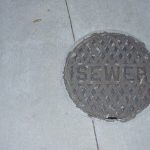When you run out of hot water, it’s a real drag, but this is especially annoying when the weather is colder, and you’re left cold and shivering during a shower. There are a number of reasons why this may occur, some are minor issues, and others are major problems that need professional attention. Once you have a better understanding of the potential causes, you can decide the best way to get it fixed. A local certified plumber will be able to diagnose the cause of this problem quickly and fix it for you. If you’re noticing that you’re losing hot water, there are some clues that can help you to understand the cause.
Intermittent Hot Water
The hot water heater has a pair of heating elements to bring your water up to temperature. One heating element is located at the top of the heater and the other one at the bottom. The purpose of the top heating element is to reheat the water, it controls the thermostat, and makes the water hot. The bottom heating element works differently; it keeps the water at a consistently warm temperature. A water heater can work with only one element, but this is extremely inefficient, and the supply of hot water will be intermittent. If you find that your water feels hot and then it suddenly turns cold, it’s likely that the bottom heater element has failed. This will need to be replaced by a local professional plumber, and the part is relatively inexpensive.
Alternating Spurts of Cold Water
If you’ve noticed that you can’t seem to control the water temperature, the cause could be a layer of sediment that is building up inside your water heater. Some common causes of sediment include hard water, aging plumbing pipes, or an anode rod that is worn. In some cases, this problem can be fixed by flushing and draining the hot water tank to remove the sediment. If this doesn’t fix the problem, it’s a good idea to address the causes of the sediment build-up directly whit a new anode rod or plumbing pipes. Many people opt for a new water heater installation to save money which is a reasonable solution if the unit is regularly maintained.
Insufficient Hot Water
If you have a large or growing family and you notice that you never seem to have enough hot water, it’s a huge problem. A large family needs more hot water for showering, bathing, cleaning, laundry, and many other tasks. If everyone in the home can’t get a hot shower in the morning, it means that the hot water heater probably isn’t large enough to meet your needs. A larger hot water heater holds more water, and the latest on-demand water heaters only heat water when you need it. Installing a new hot water heater can be a good investment if you choose an efficient unit. If you’re thinking of installing a new hot water heater, hire a local professional plumber to make sure the job gets done right.
The Water Doesn’t Get Hot Enough
Have you noticed that you spend a lot of time with the tap or shower running, and the water doesn’t seem to heat up enough? Inside traditional water heaters that hold water, you will find a dip tube. This component is designed to force cold water down to the bottom of the tank, where the bottom heating element will heat it up. But, if the dip tube stops working, all that cold water in the tank will be added to hot water instead. This will cause the water to feel lukewarm, and it will never get hot enough to meet your needs. In this case, the dip tube will need to be replaced, or if you have an aging water heater, it may be more cost effective to replace it with a modern, efficient alternative. An on-demand water heater only heats the water that you need making it a more efficient water heating option for your home.
Only Cold Water
If you are only getting cold water from your taps and plumbing fixtures, it’s likely that your water heater is shot. Another possible cause is the thermostat unit which may have failed. It’s worth consulting your owner’s manual before you call a plumber because the thermostat can sometimes be reset with a button press. If this doesn’t fix the problem, call your local certified plumber and get them to check it out for you. Upgrading to a new hot water heater may be an unwanted expense, but the gains in efficiency will pay off in the medium to long term. The latest hot water heaters consume less energy which leads to lower utility bills.
2 Possible Cold Shower Issues
When there is a problem with hot water, we often notice it first in the shower. As we’ve seen, a lot of hot water issues are related to the water heater, but there could be other problems too.
- A Shower Problem Only?
If you’re showering in cold water, the first thing you need to do is find out if this is a localized problem or happening throughout the home. If you’ve noticed that you can’t get a hot shower after other people, wait 30 minutes and try again. If the shower gets hot, it’s likely that the water heater is too small. The delay was caused by the hot water heater refilling and reheating the water. If the hot water issue is located in the shower only, it’s time to check the shower valve.
2. Examining the Shower Valve
The shower valve is a plumbing fixture that mixes the hot and cold water together before it reaches the showerhead. Inside the shower valve, there is a washer and rubber O-ring that can wear out over time. When these small parts fail, the shower valve won’t work correctly, and the water will feel cold. Replacing the washer and O-ring may be possible if you have good DIY skills and some basic plumbing knowledge. If you’re not sure how to proceed, call your local certified plumber for professional help.
If you’re experiencing hot water problems or you’ve noticed strange sounds from your water heater, contact a local plumber today.
By Giovanni Longo President Flood Brothers Plumbing
Giovanni Longo is a 3rd generation master plumber who has been practicing his craft and trade in the greater Los Angeles area for well over a decade and a half. A plumbing and hydraulics-engineering innovator, Giovanni’s particular world-class expertise focuses on dealing with challenging sewer system designs as well as resolving complex commercial and residential draining issues. As a certified Flood Mitigation expert, he is also well versed in a wide variety of water damage and remediation solution.





